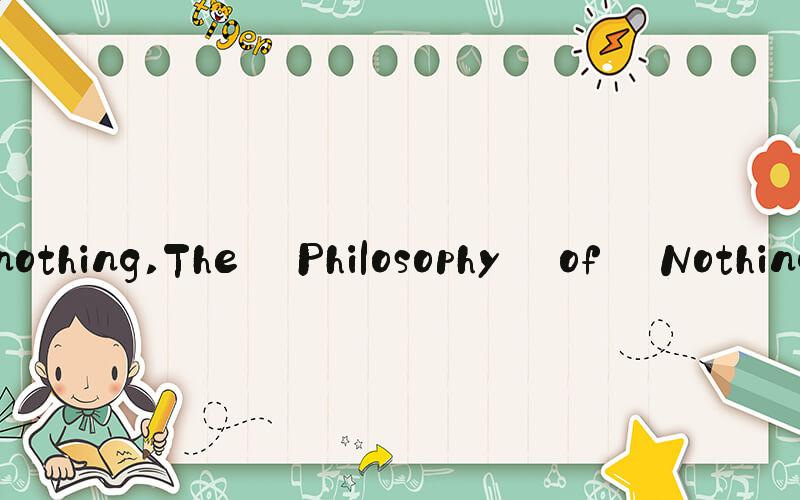 Nothing: A Philosophical and Psychological Exploration
Nothing: A Philosophical and Psychological ExplorationWhat is nothing? It's a question that has puzzled philosophers and scientists for centuries. Is it an absence, a void, or something more? In this article, we will explore the concept of nothing from both a philosophical and psychological perspective. We will delve into its meaning, its implications, and its role in our lives.
The Philosophy of NothingFrom a philosophical standpoint, nothingness has been a central theme throughout history. From ancient Greek philosophers like Parmenides, who claimed that "nothing is not," to modern thinkers like Jean-Paul Sartre, who famously declared that "existence precedes essence," the concept of nothingness has been debated, dissected, and analyzed. Philosophers have explored the nature of nothingness and its relation to concepts like being, non-being, and existence.
One way to understand the philosophy of nothingness is through the idea of negation. Negation is the process of denying or rejecting something. In this sense, nothingness can be seen as a negation of being. It is the absence of existence, a void that is defined by what it is not. The German philosopher Martin Heidegger famously described nothingness as a "rupture" in being, a moment of crisis in which the illusions of the world are shattered and we are forced to confront the underlying reality of our existence.
The Psychology of NothingFrom a psychological perspective, nothingness can be seen as a source of anxiety and fear. The fear of nothingness, or nihilophobia, is a common human emotion that arises from the realization that our existence is temporary and that eventually, we will all face death. In response to this fear, humans have developed a tendency to seek out meaning and purpose in life, whether through religion, relationships, work, or other pursuits.
However, the pursuit of meaning can sometimes lead to a kind of existential crisis. When we confront the reality of our mortality and the ultimate emptiness of the universe, we may feel a sense of despair or hopelessness. This can lead to a variety of negative emotions and behaviors, including depression, anxiety, substance abuse, and even suicide.
The Role of Nothingness in Our LivesDespite its negative connotations, nothingness can also be seen as a positive force in our lives. In the Taoist philosophy, for example, the concept of Wu Wei, or "action without action," emphasizes the value of doing nothing and simply allowing events to unfold naturally. Similarly, in meditation and mindfulness practices, the goal is often to quiet the mind and embrace the present moment, letting go of the distractions and attachments that prevent us from experiencing true peace and happiness.
Ultimately, the concept of nothingness is multifaceted and complex. It can be seen as a source of anxiety and fear, as well as a source of peace and tranquility. It can be a philosophical puzzle or a psychological challenge. In the end, whether nothingness is a positive or negative force in our lives depends on how we choose to approach it.
ConclusionNothingness is a concept that has captivated thinkers for centuries. From the ancient Greeks to modern psychologists, philosophers and scientists have sought to understand its essence. While it can be difficult to define, nothingness is a fundamental part of the human experience. It is the void that gives meaning to our lives, the absence that makes our existence precious, and the mystery that keeps us searching for answers. As we continue to explore the nature of nothingness, we may discover new insights into the human condition and the universe at large.
